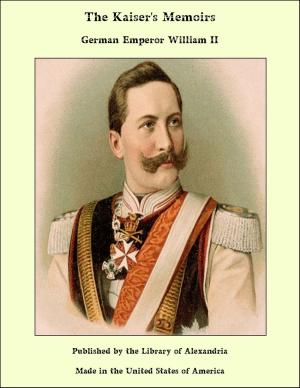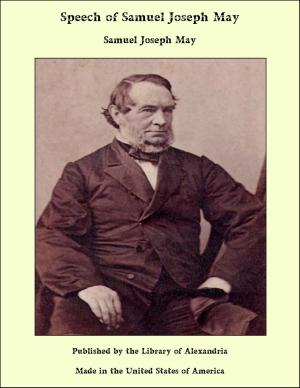The Life of Napoleon Bonaparte (Complete)
Nonfiction, Religion & Spirituality, New Age, History, Fiction & Literature| Author: | William Milligan Sloane | ISBN: | 9781465589675 |
| Publisher: | Library of Alexandria | Publication: | March 8, 2015 |
| Imprint: | Language: | English |
| Author: | William Milligan Sloane |
| ISBN: | 9781465589675 |
| Publisher: | Library of Alexandria |
| Publication: | March 8, 2015 |
| Imprint: | |
| Language: | English |
Napoleon Bonaparte was the representative man of the epoch which ushered in the nineteenth century. Though an aristocrat by descent, he was in life, in training, and in quality neither that nor a plebeian; he was the typical plain man of his time, exhibiting the common sense of a generation which thought in terms made current by the philosophy of the eighteenth century. His period was the most tumultuous and yet the most fruitful in the world's history. But the progress made in it was not altogether direct; rather was it like the advance of a traveler whirled through the spiral tunnels of the St. Gotthard. Flying from the inclemency of the north, he is carried by the ponderous train due southward into the opening. After a time of darkness he emerges into the open air. But at first sight the goal is no nearer; the direction is perhaps reversed, the skies are more forbidding, the chill is more intense. Only after successive ventures of the same kind is the climax reached, the summit passed, and the vision of sunny plains opened to view. Such experiences are more common to the race than to the individual; the muse of history must note and record them with equanimity, with a buoyancy and hopefulness born of larger knowledge. The movement of civilization in Europe during the latter portion of the eighteenth century was onward and upward, but it was at times not only devious, slow and laborious, but fruitless in immediate results. We must study the age and the people of any great man if we sincerely desire the truth regarding his strength and weakness, his inborn tendencies and purposes, his failures and successes, the temporary incidents and the lasting, constructive, meritorious achievements of his career. This is certainly far more true of Napoleon than of any other heroic personage; an affectionate awe has sometimes lifted him to heaven, a spiteful hate has often hurled him down to hell. Every nation, every party, faction, and cabal among his own and other peoples, has judged him from its own standpoint of self-interest and self-justification.
Napoleon Bonaparte was the representative man of the epoch which ushered in the nineteenth century. Though an aristocrat by descent, he was in life, in training, and in quality neither that nor a plebeian; he was the typical plain man of his time, exhibiting the common sense of a generation which thought in terms made current by the philosophy of the eighteenth century. His period was the most tumultuous and yet the most fruitful in the world's history. But the progress made in it was not altogether direct; rather was it like the advance of a traveler whirled through the spiral tunnels of the St. Gotthard. Flying from the inclemency of the north, he is carried by the ponderous train due southward into the opening. After a time of darkness he emerges into the open air. But at first sight the goal is no nearer; the direction is perhaps reversed, the skies are more forbidding, the chill is more intense. Only after successive ventures of the same kind is the climax reached, the summit passed, and the vision of sunny plains opened to view. Such experiences are more common to the race than to the individual; the muse of history must note and record them with equanimity, with a buoyancy and hopefulness born of larger knowledge. The movement of civilization in Europe during the latter portion of the eighteenth century was onward and upward, but it was at times not only devious, slow and laborious, but fruitless in immediate results. We must study the age and the people of any great man if we sincerely desire the truth regarding his strength and weakness, his inborn tendencies and purposes, his failures and successes, the temporary incidents and the lasting, constructive, meritorious achievements of his career. This is certainly far more true of Napoleon than of any other heroic personage; an affectionate awe has sometimes lifted him to heaven, a spiteful hate has often hurled him down to hell. Every nation, every party, faction, and cabal among his own and other peoples, has judged him from its own standpoint of self-interest and self-justification.















